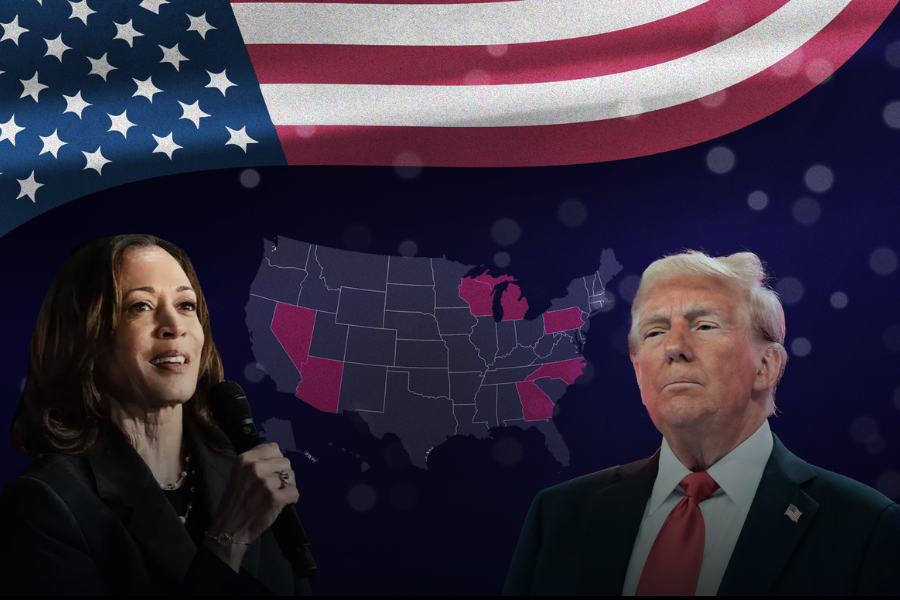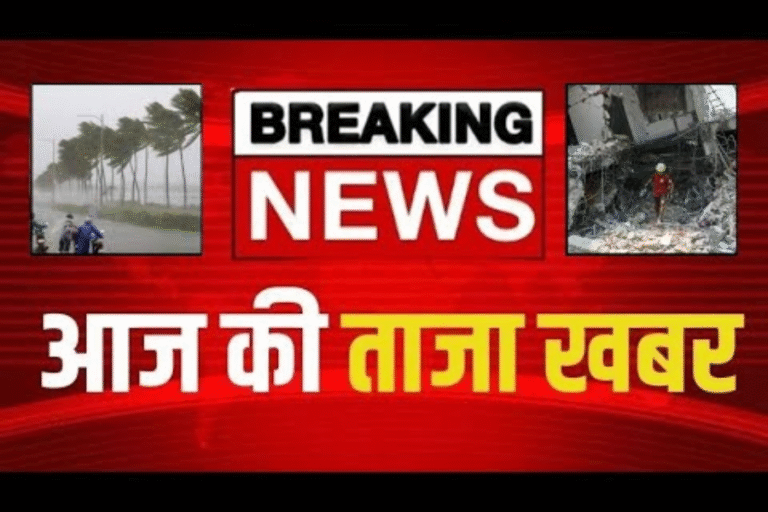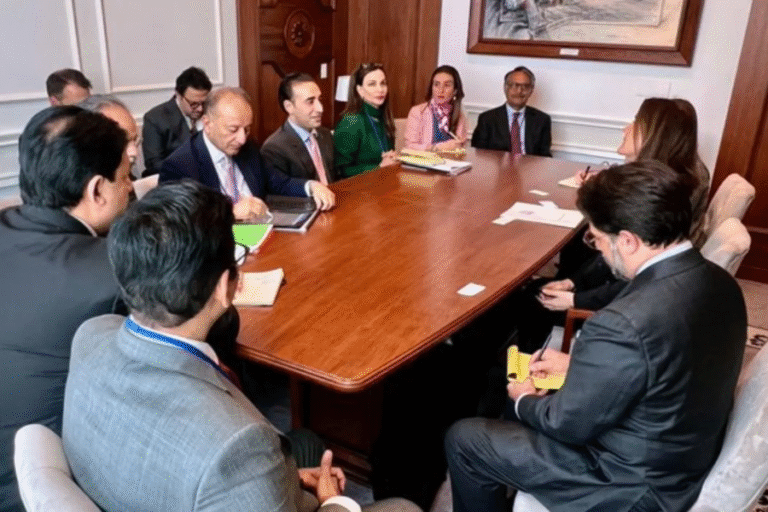InvestorWeeklyNews Explains: Why the World Is Watching the 2025 Elections
The world in 2025 is not just facing another election year—it is bracing for a series of political events that could redefine economies, reshape international alliances, and influence the trajectory of technology, climate policy, and social progress. From the United States to the European Union, from Latin America to Southeast Asia, the upcoming elections are not isolated political moments. They are turning points that reflect global anxieties, ambitions, and tensions.
InvestorWeeklyNews takes a comprehensive look at why the 2025 elections are commanding international attention, what’s at stake, and how the outcomes could ripple far beyond national borders.
Global Stakes: Why These Elections Matter
Elections in 2025 are about much more than choosing leaders. They represent a crossroads for democracy, economic recovery, digital policy, and climate action. The post-pandemic world is still adjusting, and political leaders elected now will carry the responsibility of guiding countries through a critical phase of rebuilding, realignment, and reform.
Global citizens, investors, policymakers, and activists are closely watching this year’s elections because many of the issues being debated are transnational. Whether it’s climate change targets, artificial intelligence regulation, trade agreements, or defense pacts, the outcomes in one country can influence decisions and momentum in others.
The United States: A Referendum on Polarization
The United States presidential election is once again the centerpiece of global political focus. With a deeply divided electorate, concerns around voting rights, media manipulation, and institutional trust are front and center. For American citizens, this election is about leadership, national direction, and the future of democracy. For the rest of the world, it’s about clarity on global leadership.
The 2025 election comes at a time when the U.S. is facing economic competition from China, managing strategic relationships with Europe, and navigating complex conflicts in the Middle East. The chosen administration will have to manage both internal healing and external assertiveness.
Trade policy, military alliances like NATO, the country’s stance on global climate accords, and its role in global digital governance will all depend heavily on who sits in the Oval Office next year.
The European Front: Fragmentation or Unity
Across Europe, elections in major economies like Germany, France, and Spain are shaping debates about migration, integration, and the future of the European Union. Populist movements have gained ground in several countries, leading to real questions about whether the EU can continue to operate with unity and purpose.
Economic pressures from inflation, the war in Ukraine, and energy instability are testing traditional parties. New political coalitions are forming, many of them centered around nationalism or environmental urgency. These elections will determine whether the continent leans more toward unity or division in the years ahead.
Asia’s Emerging Powerhouses
In Asia, key elections are taking place in countries that are emerging as global economic and strategic hubs. India, for instance, is preparing for an election that could extend the current leadership or pivot to a new economic and foreign policy strategy.
Indonesia, the fourth most populous country in the world, is also heading into an election with significant implications for regional stability and environmental leadership. With vast rainforests and a strategic geopolitical location, its leadership choices matter globally.
Japan, South Korea, and the Philippines are navigating security relationships with both China and the U.S., while managing their own internal economic shifts. Voters in these nations are responding not only to local governance issues but also to global tensions playing out in their regions.
Africa’s Democratic Movements
Africa’s 2025 elections are focused on accountability, development, and the consolidation of democracy. Countries like Nigeria, Kenya, and South Africa are grappling with corruption, youth unemployment, and the need for more inclusive governance. However, what sets this year apart is the rise of digital campaigning and civil society activism.
Young voters are shaping the political landscape through social media platforms and grassroots movements. As these countries go to the polls, international observers are monitoring how well electoral bodies manage transparency and public trust.
Africa’s economic rise is tied closely to political stability. From resource management to international investment, the outcomes of these elections will affect global markets and development aid strategies.
Latin America’s Left-Right Tension
Latin America remains one of the most politically volatile regions in the world, and 2025 is no exception. Several countries, including Argentina, Chile, and Peru, are preparing for elections amid debates on economic inequality, corruption, and the role of foreign capital.
In recent years, there has been a swing between left-leaning and conservative governments. The region is a case study in political pendulums. This year’s elections will either stabilize certain trajectories or trigger fresh waves of protest and policy reversal.
For foreign investors and trade partners, Latin America’s elections offer both opportunity and risk. The political ideologies chosen at the ballot box will define access to natural resources, regulation of industries, and openness to foreign partnerships.
Digital Influence and Election Integrity
One of the major global concerns about the 2025 elections is the role of digital platforms and the rise of misinformation. Countries around the world are struggling to manage the influence of fake news, deepfakes, and coordinated disinformation campaigns, often originating from foreign actors.
Social media has become both a democratic tool and a potential threat to democracy. Platforms like X, Instagram, and TikTok are being used to mobilize voters and challenge incumbents, but they are also amplifying division and distrust.
Efforts to regulate political content online are being closely watched. Will tech companies be held accountable for content moderation? Can national election commissions effectively counter digital manipulation? These are urgent questions in every democracy heading into elections this year.
Climate Change on the Ballot
From record heatwaves to devastating floods, climate change is no longer an abstract issue. It is immediate, visible, and affecting voters worldwide. In 2025, environmental policy is emerging as a decisive factor in many elections.
Parties and candidates are being judged not only on promises but on their past actions and future readiness. Young voters, in particular, are demanding detailed, science-based policies on renewable energy, conservation, and carbon emissions.
What happens at the ballot box will directly influence the success or failure of international climate goals, especially in countries responsible for high emissions or critical ecosystems.
The Rise of Women and Minority Leaders
Another notable feature of the 2025 elections is the growing visibility of women and minority candidates. While representation gaps remain, more countries are fielding diverse candidates than ever before. These leaders bring new perspectives to issues like healthcare, education, digital access, and equality.
Globally, voters are signaling a desire for leaders who reflect the societies they represent. Diverse leadership is not just a symbolic gesture—it is central to building policies that work for everyone. This trend marks a significant shift in how politics is being practiced and understood in the 21st century.
Final Thoughts
The 2025 elections are not just national moments. They are global signals. In every region, from powerful industrialized nations to emerging democracies, voters are facing decisions that will shape economies, influence borders, and affect billions of lives.
What makes this year’s elections different is the speed of change and the high stakes involved. Technology, environment, public health, and global cooperation are all in flux. The leaders chosen in 2025 will either rise to meet these challenges or fall behind history’s demands.
At InvestorWeeklyNews, we will continue to cover these elections not just as political contests, but as critical chapters in the global story. Stay tuned for our in-depth updates, interviews, and analyses. The world is watching the 2025 elections—and so are we.






